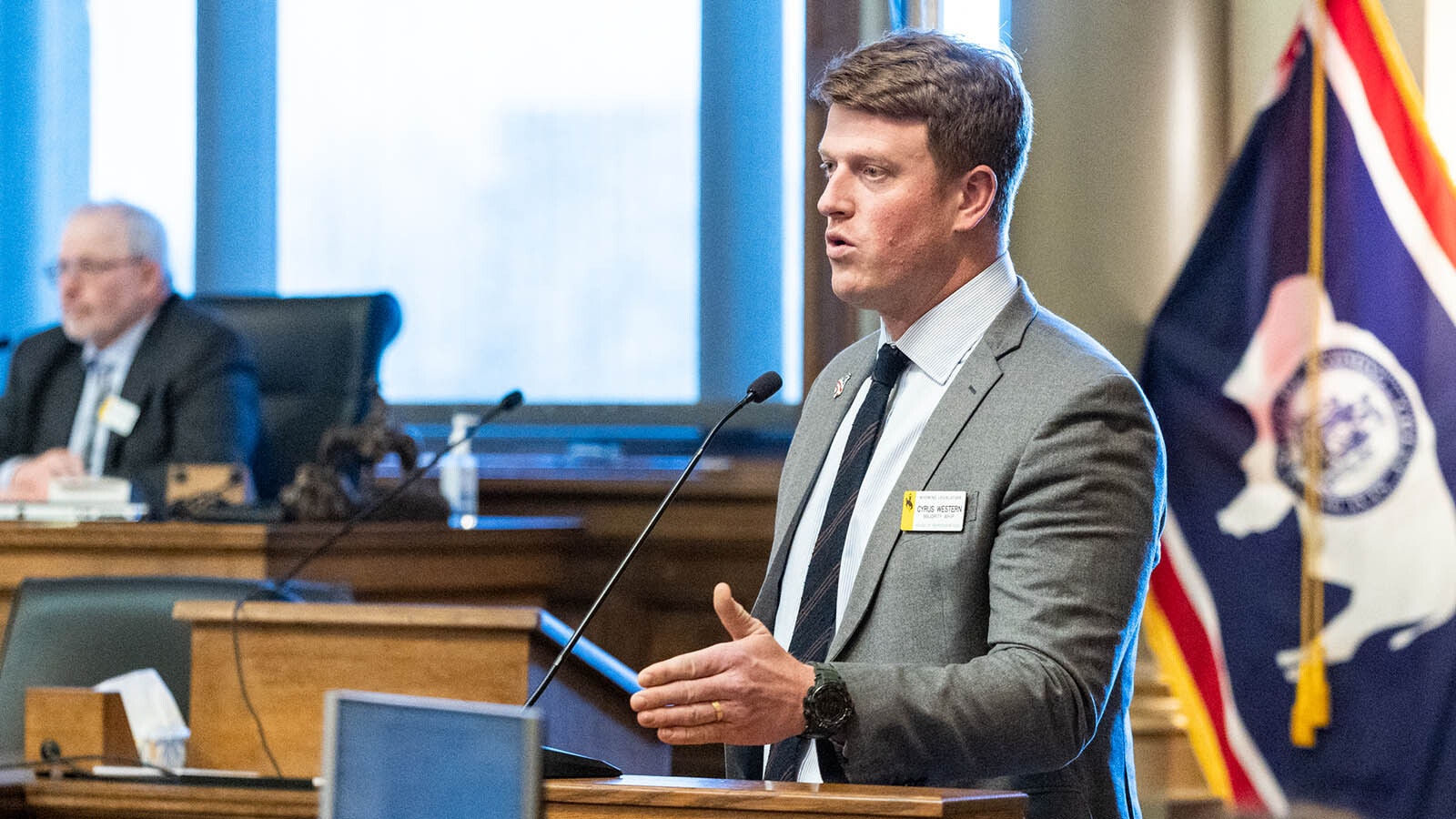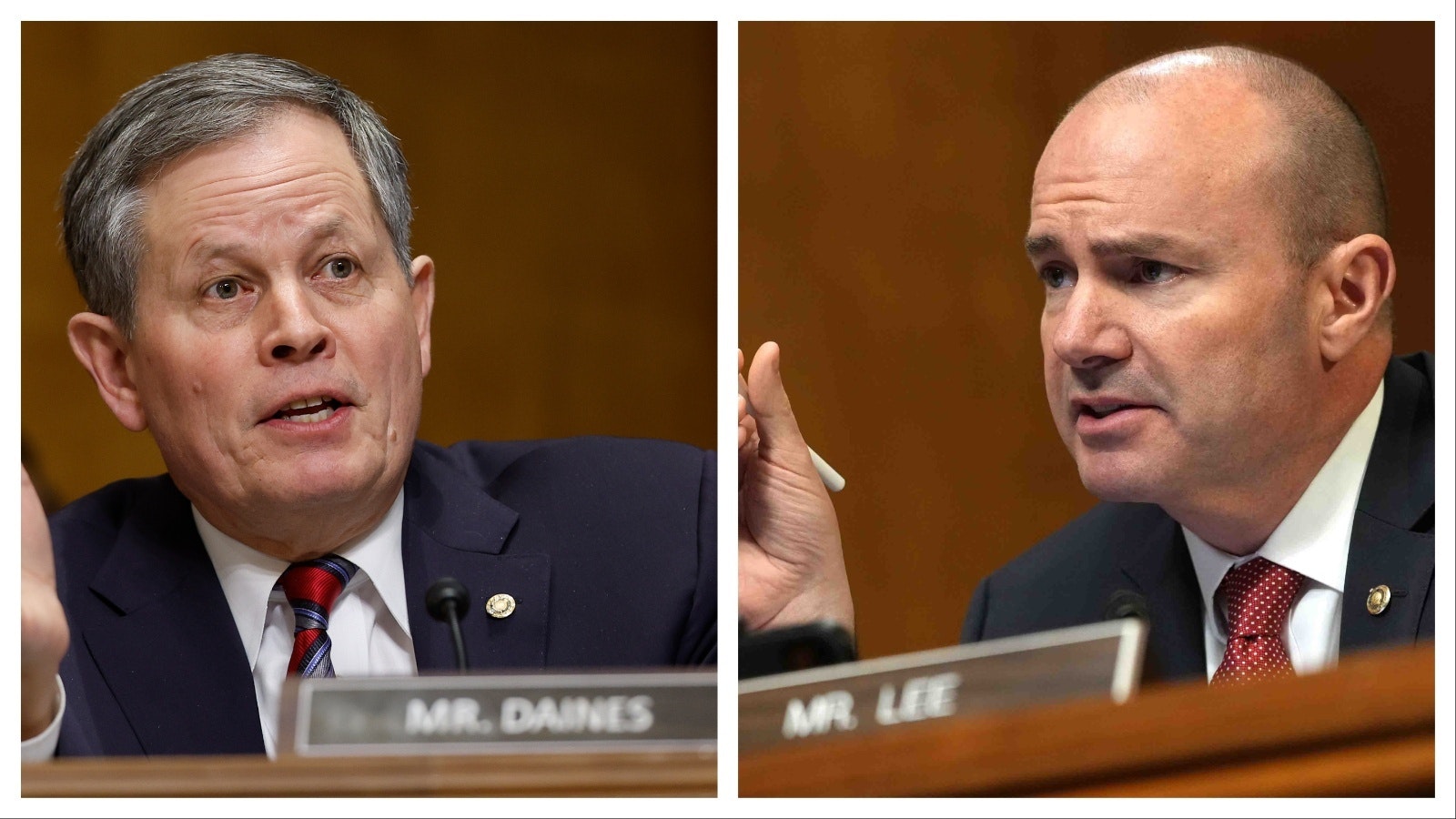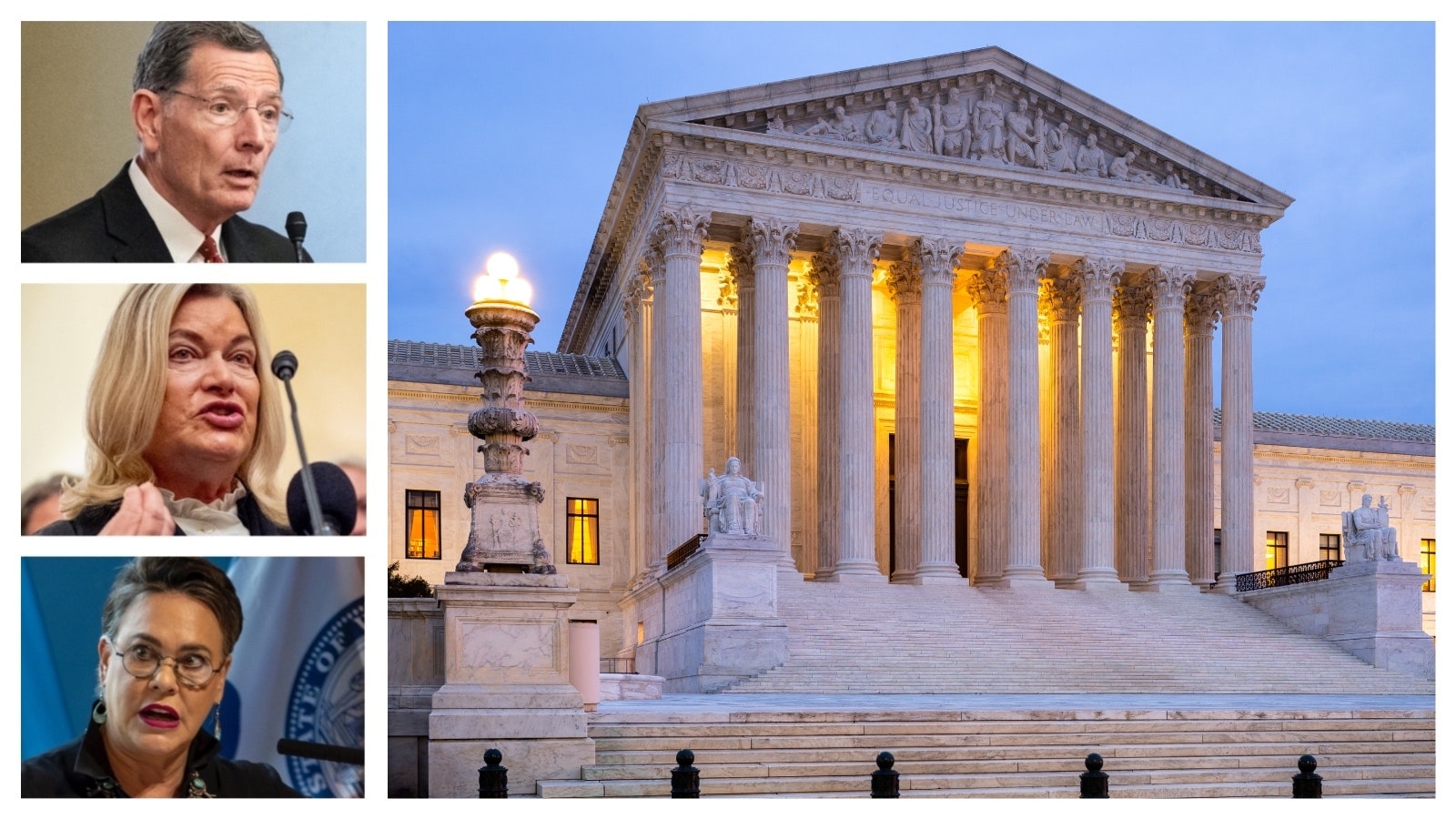“Deepfakes” and fake media have become increasingly prevalent in recent years thanks to the rising prominence of artificial intelligence (AI).
The state Select Committee on Blockchain, Financial Technology and Digital Innovation Technology advanced a bill on a 5-2 vote Tuesday that establishes an avenue for civil and criminal prosecution of those who maliciously produce “synthetic media” in Wyoming.
Synthetic media means an image, audio recording or video of a natural person's appearance, speech or conduct that has been intentionally manipulated or generated in a manner to create a realistic but false image that would cause a reasonable person to believe the appearance, action or speech depicted. This media would have to be released in a manner with a clear intent to mislead.
What It Does
Although almost every member of the committee pointed out flaws with the bill, co-chair Rep. Cyrus Western, R-Ranchester, said it serves a necessary purpose.
“We have a problem and it’s our job to fix it,” he said. “We have a bill that generally puts the sideboards on what we need to make sure people continue exercising their First Amendment rights.”
It would allow anyone who’s the subject of or is misled by synthetic media to sue in civil court to enjoin or restrain the distribution of the synthetic media. They also can seek damages from the person who knowingly and intentionally makes the synthetic media publicly available.
“We’re trying to balance rights of speech and at the same time protect individuals from abuses through synthetic media or misleading information, that’s the tension here,” said co-chair Rep. Chris Rothfuss, D-Laramie.
Any person who is depicted by or who is misled by the synthetic media can seek damages in a Wyoming civil court. The Wyoming attorney general and any county attorney also can bring an action for temporary or permanent injunctive or other relief in any court of competent jurisdiction for any violation of the proposed law.
A court can also award restitution as determined appropriate.
For Politics
The proposed bill was based on a law that the state of Washington already has on the books that is particularly focused on elections.
A person who violates the Wyoming law with malicious intent to influence the outcome of any election in Wyoming or to facilitate any other criminal act can be found guilty of a misdemeanor and can get up to six months in jail and a fine of no more than $750.
Sen. Tara Nethercott, R-Cheyenne, said she sees the bill as protecting democracy and specifically targeting political venues and deterring people from creating fake images and messages presented as real.
“This bill is intending to protect the integrity of information being provided to the public to make … fully informed and educated and accurately informed decisions about candidates to vote for, not necessarily protecting my reputation,” she said.
Nethercott took a personal spin on the bill, mentioning inaccurate claims made against her during the 2022 Secretary of State race that she previously voted to give herself a raise and that she was being sued for lying by this office. She said these type of actions made in the future would not be blocked under the bill.
Rep. Ocean Andrew, R-Laramie, said bringing criminal law into free speech sets a dangerous precedent. He unsuccessfully proposed an amendment removing the criminal part of the bill, mentioning how defamation and libel are already covered under law. He also suggested expanding existing laws for issues of false portrayals.
Protection For Platforms?
TechNet, a national network of technology CEOs and senior executives, took aim at the private litigation aspect of the bill.
“We see something that can be taken subjectively, we don’t see that a private right of action actually provides a benefit,” testified Ruthie Barko, a lobbyist for TechNet. “We think that this is an emerging area of technology, and in order to support that innovation, attorney general enforcement is more appropriate than having civil liability.”
Barko mentioned synthetic media laws passed in some other states provide exemptions for content that clarifies it is satire or parody.
Rothfuss said this provides a “glorious loophole” for those claiming their synthetic media was a parody or satire after being caught.
Barko also asked for exemptions built into the bill protecting online platforms like YouTube, Facebook and Substack that may be hosting the synthetic media. Rep. Mike Yin, D-Jackson, unsuccessfully brought an amendment that would have done that.
Rothfuss opposed the amendment, saying platforms that aren’t complicit in knowingly distributing synthetic media should have nothing to worry about under the law.
Western said he also found fault with this request, drawing a comparison to the fact that most of the Fentanyl found in the U.S. originates from China and India, but that doesn’t mean they should have no accountability for the impacts of the deadly drug here.
“To say they have no responsibility or culpability in this entire problem, I think is just wrong,” he said. “This is a serious problem that has serious consequences, and for the folks who are playing some role in this happening, to say they are not culpable at all, I struggle with that argument.”
The Motion Picture Association had similar complaints, saying the legislation lacks clarity and would artificially impose requirements and censorship on any kind of media that has been altered with AI technology. The group submitted its own suggested amendments to the bill that would ensure it doesn’t encroach the First Amendment, creative freedoms and the rights of other content producers, and provides clear exemptions for private works.
Arlen Valdivia, a representative of the organization, brought up a scenario of news broadcasters unknowingly presenting what amounts to synthetic media.
Rothfuss acknowledged the concern felt by some that drafting laws like this could lead to a flood of frivolous lawsuits, but he added there is an almost total lack of consumer protection laws in Wyoming.
Free Speech Concerns
Although she thinks the bill has the appropriate safeguards, Nethercott advised caution to make sure it doesn’t subdue free speech. She voted to support the bill, but said it probably needs another interim session of work to perfect to make sure First Amendment rights are protected.
“This is a scary bill to move forward, it is scary in that regard,” she said. “A court could declare it in its particular application of which we haven’t fully appreciated in our deliberative debate and public comment that it could infringe on someone’s free speech rights.”
The First Amendment affords limitations on speech such as speech that causes legitimate harm to others.
Western said it’s possible to “thread the needle” between infringing on free speech and addressing synthetic media.
“I think we can do so in a way that ensures people have the right to express themselves,” he said.
Those delivering synthetic media without the intent to mislead must provide clear notice that the production is a parody in nature with a watermark or notice disclaimer. For synthetic media that is audio in format only, a disclaimer must be included at the beginning of the recording, and for recordings longer than two minutes, disclaimers must be dispersed throughout.
Andrew unsuccessfully brought an amendment to remove this part of the bill, which he considered the most concerning part and an “unnecessary alternative to the First Amendment.”
“What it does is it compels speech,” he said.
Nethercott and Western spoke against the amendment, saying it would render the bill unconstitutional and meaningless.
Although the bill clarifies that any synthetic media protected under the First Amendment of the Constitution is protected, Cheyenne resident Richard Garrett still spoke against it. He mentioned the 1952 dystopian novel “Fahrenheit 451,” which predicts a time where every book is banned.
“That’s kind of the future that we’re headed toward as we ban free speech or as we attempt to grapple with this issue,” he said.
Rothfuss then asked Garrett how he would feel if someone used AI to manipulate his image and likeness to say that he doesn’t like puppy dogs.
“Then the world quickly believes that Richard Garrett is a puppy hater, which is obviously not true, Richard. We know that you are a friend of puppies, as we all are,” Rothfuss said.
Garrett said he’s been misquoted in the media before and that if someone wants to falsely call him a puppy hater, it’s his and the duty of others to personally speak out against this.
How They Voted
Voting for the bill were Rothfuss, Western, Yin, Nethercott and Sen. Dan Furphy, R-Laramie. Voting against were Andrew and Rep. Daniel Singh, R-Cheyenne.
Leo Wolfson can be reached at leo@cowboystatedaily.com.





